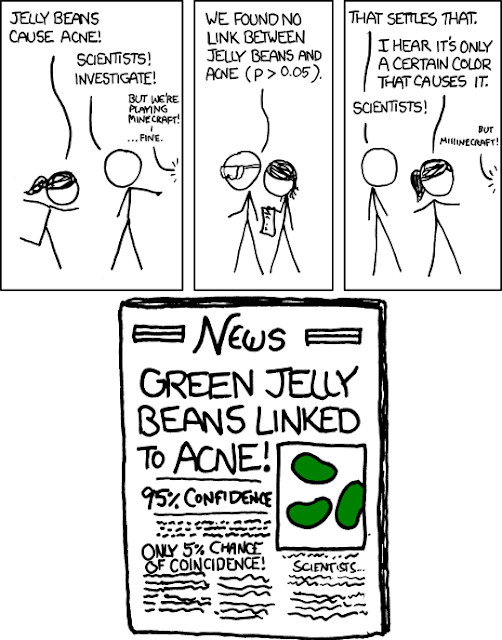As an undergraduate I rarely thought to scrutinize data
presented in scientific papers. I always assumed the data presented was honest
and accurate. In my mind it had to be in order to get published. It wasn’t
until starting graduate school and becoming involved in various journal clubs
that I learned to better analyze data presented, and determine not only if the
data supported conclusions being made, but also how results were generated. As
I became cognizant of this, I began to notice that some of the grand
conclusions made in various papers were not fully supported by the results
published. Taking it a step further, I also began to notice how scientists
around me would manipulate conditions and data to better support their
hypotheses. I fully agree with the point made in the article “Why you can’talways believe what you read in scientific journals” regarding the pressure to
publish in high impact journals as an indication of scientific success. This
pressure can not only compromise the quality of work in my opinion, but it can
also lead to a compromise in integrity. Pressure on the PI leads to pressure
for scientists in the lab. This stress can even create an environment of fear
when presenting data that does not fit the theories proposed. Another point,
made in Scientific American, touched
on the issue of reproducibility in research, and how in many cases research is
irreproducible. The article also addressed the fact that this irreproducibility
is swept under the rug due to the fear of public opinion and funding
opportunities. I feel that if less emphasis is put on “perfect research”,
research that proves theories, scientists may feel freer to actually perform
unbiased research.
While peer-review can prove useful in trying to combat unreliable
research, I agree with implementing other methods, such as the 18-point
checklist implemented by Nature and
its sister publications and the post-publication review site PubPeer, to help
rebound this apparent downward trend in the integrity of scientific research.
This secondary accountability may help scientists to better design experiments
and self-correct so as to not jeopardize credibility.


